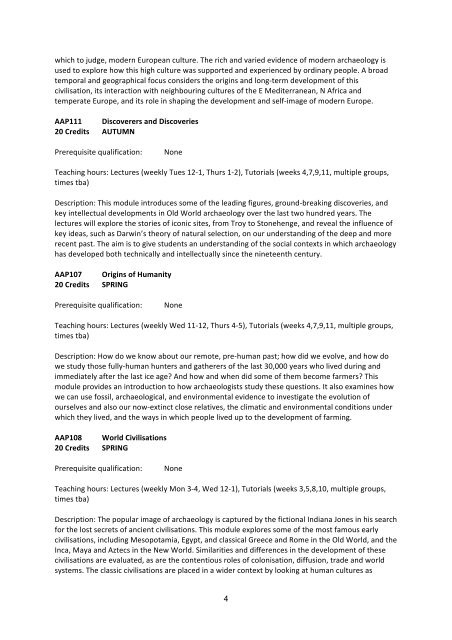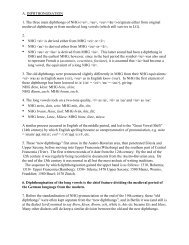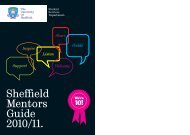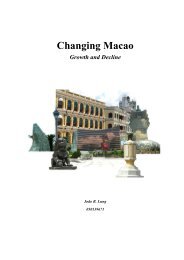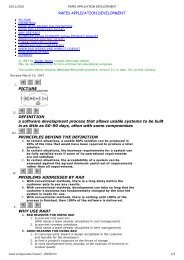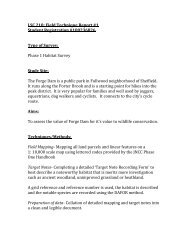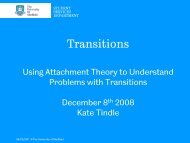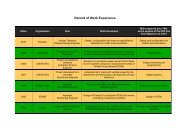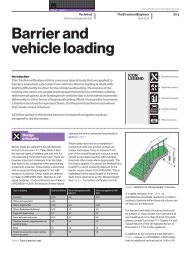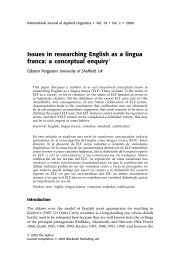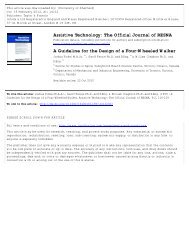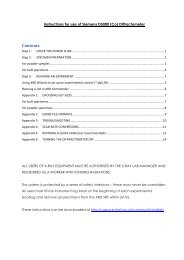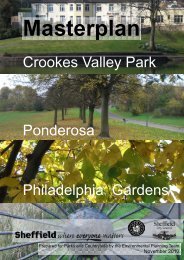Free Modules SOMLAL.pdf
Free Modules SOMLAL.pdf
Free Modules SOMLAL.pdf
You also want an ePaper? Increase the reach of your titles
YUMPU automatically turns print PDFs into web optimized ePapers that Google loves.
which to judge, modern European culture. The rich and varied evidence of modern archaeology is<br />
used to explore how this high culture was supported and experienced by ordinary people. A broad<br />
temporal and geographical focus considers the origins and long-‐term development of this<br />
civilisation, its interaction with neighbouring cultures of the E Mediterranean, N Africa and<br />
temperate Europe, and its role in shaping the development and self-‐image of modern Europe.<br />
AAP111 Discoverers and Discoveries<br />
20 Credits AUTUMN<br />
Prerequisite qualification: None<br />
Teaching hours: Lectures (weekly Tues 12-‐1, Thurs 1-‐2), Tutorials (weeks 4,7,9,11, multiple groups,<br />
times tba)<br />
Description: This module introduces some of the leading figures, ground-‐breaking discoveries, and<br />
key intellectual developments in Old World archaeology over the last two hundred years. The<br />
lectures will explore the stories of iconic sites, from Troy to Stonehenge, and reveal the influence of<br />
key ideas, such as Darwin’s theory of natural selection, on our understanding of the deep and more<br />
recent past. The aim is to give students an understanding of the social contexts in which archaeology<br />
has developed both technically and intellectually since the nineteenth century.<br />
AAP107 Origins of Humanity<br />
20 Credits SPRING<br />
Prerequisite qualification: None<br />
Teaching hours: Lectures (weekly Wed 11-‐12, Thurs 4-‐5), Tutorials (weeks 4,7,9,11, multiple groups,<br />
times tba)<br />
Description: How do we know about our remote, pre-‐human past; how did we evolve, and how do<br />
we study those fully-‐human hunters and gatherers of the last 30,000 years who lived during and<br />
immediately after the last ice age? And how and when did some of them become farmers? This<br />
module provides an introduction to how archaeologists study these questions. It also examines how<br />
we can use fossil, archaeological, and environmental evidence to investigate the evolution of<br />
ourselves and also our now-‐extinct close relatives, the climatic and environmental conditions under<br />
which they lived, and the ways in which people lived up to the development of farming.<br />
AAP108 World Civilisations<br />
20 Credits SPRING<br />
Prerequisite qualification: None<br />
Teaching hours: Lectures (weekly Mon 3-‐4, Wed 12-‐1), Tutorials (weeks 3,5,8,10, multiple groups,<br />
times tba)<br />
Description: The popular image of archaeology is captured by the fictional Indiana Jones in his search<br />
for the lost secrets of ancient civilisations. This module explores some of the most famous early<br />
civilisations, including Mesopotamia, Egypt, and classical Greece and Rome in the Old World, and the<br />
Inca, Maya and Aztecs in the New World. Similarities and differences in the development of these<br />
civilisations are evaluated, as are the contentious roles of colonisation, diffusion, trade and world<br />
systems. The classic civilisations are placed in a wider context by looking at human cultures as<br />
4


